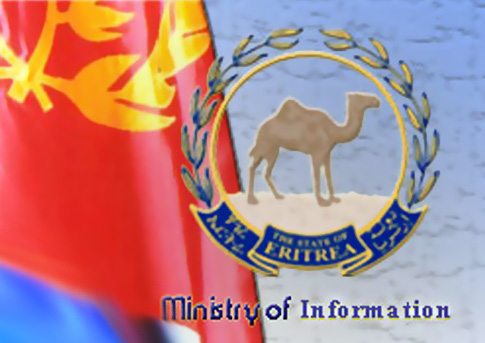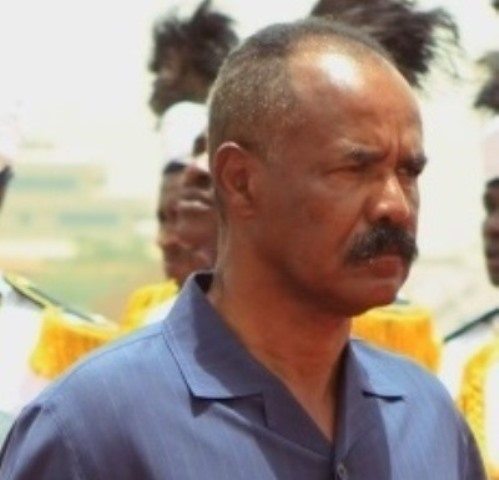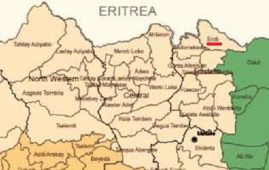Dec. 9, 2011 (UN News Center) – Secretary-General Ban Ki-moon paid an unannounced visit to Mogadishu today together with the President of the General Assembly, Nassir Abdulaziz Al-Nasser, to express the solidarity of the United Nations at what he called a “critical juncture” for the future of the Somali people.
“We have come here to see for [ourselves] the changes under way and show the strong solidarity of the United Nations and the broader international community,” Mr. Ban said at a press conference in the capital.
This is the first time that a Secretary-General and Assembly President have visited Somalia together, and the first by a UI believe we are now at a critical juncture – a moment of fresh opportunities for the future of [the] Somali people.N chief in nearly two decades. The two men met with President Sheikh Sharif Ahmed and other leaders to discuss the way ahead and how the international community can help the country, which has been torn by factional strife for the past 20 years.
“I believe we are now at a critical juncture – a moment of fresh opportunities for the future of [the] Somali people,” said Mr. Ban.
“On the political front, to bring a new measure of stability and possibilities to people’s lives. On the military front, to consolidate gains,” he stated. “On the recovery front, to help break the cycle of famine, poverty once and for all.”
Mr. Ban said he stressed to the Somali leadership the importance of “seizing the moment,” adding that there is a very limited window of opportunity.
On the political front, he emphasized the need to move ahead quickly with the roadmap that was agreed in September and which spells out priority measures to be implemented before the current transitional governing arrangements end next August, in the areas of security, the drafting of a new constitution and reconciliation.
“It must be done in an inclusive and transparent way,” said the Secretary-General, adding that further extension of this roadmap will be “untenable.” He also highlighted the need to advance on the constitution and parliamentary reform.
To further these efforts, Mr. Ban announced that the UN Political Office for Somalia (UNPOS), headed by Special Representative Augustine Mahiga, will re-locate from Nairobi to Mogadishu in January.
On the military front, he lauded the efforts of the African Union Mission in Somalia (AMISOM), and stressed the need for the mission to deploy at its full strength of 12,000 troops.
He also paid tribute to the work done by UN agencies and non-governmental organizations (NGOs) on the humanitarian front, noting that their collective efforts have saved thousands of lives since famine was declared in July.
However, the situation – particularly in central and southern Somalia – remains dire, Mr. Ban said, noting that four million people are in crisis, and 250,000 people face famine.
Meanwhile, he drew attention to the new threats to humanitarians, and condemned the recent attacks and actions of the Islamist militant group Al-Shabaab.
“Humanitarian organizations in Somalia remain strictly neutral. Their mission is only to save lives, to deliver life-saving humanitarian assistance,” he emphasized. “Any attack on them is an attack on the most vulnerable people in the country.”
The Secretary-General stressed that Somalia has been suffering “too long and too much.” It is time for Somalis to reconcile with each other and ensure the peace and security necessary so that the Transitional Federal Government (TFG) can deliver basic needs and services to the people.
On his way back to Nairobi from Mogadishu, the Secretary-General visited the Dadaab refugee complex, which hosts the largest number of Somali refugees. He met with refugees and elders in the camp, as well as UN staff working to assist the refugees, during what he described as a “humbling and very sad” visit.
Source: UN News Center
************
Read below Transcript of Secretary General Ban Ki-moon’s press conference in Mogadishu – Dec. 9 2011
Secretary General: We are honoured to visit Somalia at this time. We would like to thank you for your warm welcome and hospitality. We are here to convey our strong solidarity to the people of Somalia.
This morning, upon arrival, we had a series of very constructive discussions with the President and other leadership on the future and on how the international community could help the Somali Government and people.
A few years ago people tended to think of Somalia only as “famine” or “bloodshed”.
Often when I spoke about Somalia, people wanted to change the subject.
I didn’t want to change the subject.
Rather, I wanted to change the way we see Somalia.
I believe we are now at a critical juncture – a moment of fresh opportunities for the future of Somali people.
On the political front, to bring a new measure of stability and possibilities to people’s lives. On the military front, to consolidate gains. These gains should be sustainable.
On the recovery front, to help break the cycle of famine, poverty once and for all.
This is the first time ever that the President of the United Nations General Assembly and the Secretary-General of the United Nations are visiting Somalia. The last time [one of] my predecessors was in Somalia was 18 years ago – in 1993.
We have come here to see for ourself the changes underway and show the strong solidarity of the United Nations and the broader international community.
In my discussions with Transitional Federal Government leaders, I stressed the importance of seizing this moment.
We have a very limited window of opportunity.
This must be done on three dimensions. This seems to be separate but they are all connected levels – political, military and humanitarian.
On the political front, we have a Roadmap. It has been widely endorsed. We must move ahead, quickly. It must be done in an inclusive and transparent way. The deadline is August next year. Further extension of this Roadmap will be untenable.
Now is the time to advance on the Constitution and Parliamentary reform. We must push for progress as we prepare for the upcoming London summit meeting on Somalia.
To further these efforts, I am announcing today that the United Nations Political Office for Somalia, UNPOS, will re-locate to Mogadishu, January next year.
On the military front, AMISOM has done a tremendous job in very difficult circumstances. I commend all those soldiers and particularly those who have paid the ultimate price, sacrificing their lives for peace and stability and a better life for the people of Somalia.
Working with AMISOM and the TFG, we must make sure that the gains on the ground are not reversed.
That requires AMISOM to deploy at its full strength of 12,000 troops. It also means helicopters and military engineering capabilities. In this regard, I welcome the recent endorsement by the Kenyan Parliament to dispatch soldiers to AMISOM and I take this opportunity to express my gratitude to the Governments of Burundi and Uganda for their soldiers working hard, courageously as AMISOM soldiers.
The TFG must establish local administrations in newly liberated areas in Mogadishu and south-central Somalia.
On the humanitarian front, UN agencies and NGOs have done outstanding work. Their collective efforts have saved thousands of lives since famine was declared in July.
But the situation – particularly in central and southern Somalia – remains dire. Four million people are in crisis 250,000 people face famine.
Meanwhile, there are new threats to humanitarians. I condemn the recent attacks and actions of Al-Shabaab. Humanitarian organizations in Somalia remain strictly neutral. Their mission is only to save lives, to deliver life-saving humanitarian assistance.
Any attack on them is an attack on the most vulnerable people in the country.
On all of these challenges, the African Union and other regional organizations like IGAD, Intergovernmental Authority on Development, can play a critical role together with the United Nations.
Being here is the most visible way for us to send a clear message to the people of Somalia: You are not alone.
The United Nations and the broader international community stand with you and will stay with you as you shape and build your own future.
This is my commitment as Secretary-general of the United Nations. This is the United Nations priority. And it is why we are together with you. Thank you very much.
Question: [Inaudible question on the Secretary-General’s message to other groups and to the people of Somalia]
Secretary General: The message to all other groups in Somalia, including, Al-Shabaab, is that peace and security and human rights, they have regional implications. Somalia has been suffering too long and too much. This is the time to reconcile [with] each other and bring forth peace and security and deliver so that the Transitional Federal Government can deliver basic needs and services to many people. That is why we are here. I am urging all stakeholders and particularly people, whatever differences there may be among the groups?they have to reconcile. And I am urging again the TFG leadership –President Sheikh Ahmed, the Parliament Speaker, the Prime Minister and cabinet ministers — they should do all their efforts to implement this Roadmap. And take decisive, bold political reforms including parliamentary reform and strengthening the capacities of national institutions, including security forces and national police forces, and provide basic services, basic [inaudible] humanitarian systems. Of course, I know that you lack all these capacity and resources. That is why the United Nations are mobilizing all the international community’s support. But this support should not be taken for granted. While we are very much sympathetic to such challenges and plights in your country, you must also have a clear vision for your future. This future should be shaped by the Somali people. Remember: the United Nations will always be with you.
Thank you.
Source: The Office of the Secretary General
**************
Check the Somalia archive for related posts.





